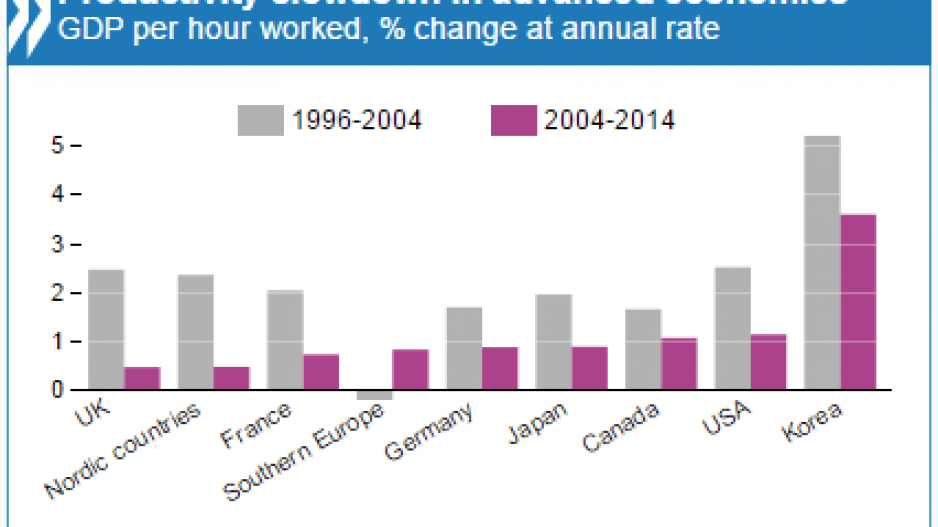Productivity growth continues to slip in advanced economies, and the phenomenon may be contributing to growing inequality, according to an analysis by the Organisation of Economic Development and Cooperation (OECD).
Productivity gains slipped in the decade between 2004 and 2014, compared to 1996-2004, according to an analysis by the OECD. Canada’s labour productivity growth rate dropped to an average of 0.9% during 2004-2014, down from an average of 1.4% between 1996 and 2004. Productivity in the United States slowed from 2.5% to 1.2%, with marked declines following the 2008 financial crisis.
The trend is similar for countries like Japan, the United Kingdom, Germany and Korea. Productivity growth has been increasing in emerging economies like China and India, but that growth is now starting to level off.
“Investment in information and communication technology for example has fallen as a share of GDP in recent years in many countries, particularly in Germany, Sweden, Japan and the US,” the OECD explains. “Business dynamism, measured by start-up rates and the pace with which new firms displace less productive companies, has also slowed significantly in many OECD economies.”
The OECD calls the phenomenon a “paradox” because productivity declines are being seen in sectors that were expected to experience productivity gains driven by technological advances, including finance, information, communication and insurance.

Slowing productivity growth could be a contributor to rising inequality because it puts downward pressure on wages, the OECD says: “This may exacerbate income and wealth inequalities, by trapping many workers in low productivity activities with high job insecurity, so creating a vicious circle.”
On labour productivity, Vancouver scored twelfth out of 20 other cities in a recent analysis by the Conference Board of Canada for the Greater Vancouver Board of Trade. Low labour productivity, low income levels and high inequality levels are some of the economic challenges Vancouver faces, according to that report.
@jenstden




